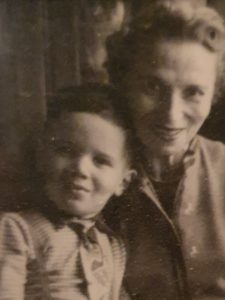Business Unit Manager Paul Thibadeau has just come out of a meeting during which CEO Stan let off some steam. “There have been far too many examples of not assuming ownership of customer problems, and as a result, all the turds get piled up on my desk. People take problems that comes their way, and by default, transfer the issue to someone else. Get this ownership issue straightened out. I am not your fucking babysitter!”
Clearly, Paul felt a certain degree of urgency after Stan has expressed his concerns in such a cogent form.
Paul’s business unit sells “value adding extra services” to the company’s major products, medical devices. Paul ‘s unit sells to 1200 clients in all continents.
Paul knows all too well that ownership is being shirked even in his business unit. However, his staff does not have a clue that anything is amiss. Here is what Paul’s direct reports think-
Baharat in Mumbai believes that Paul, being business unit manager, must clarify who owns what, and then his own job will be to carry out Paul’s directives loyally.
Sivan in Tel Aviv believes that she herself owns all problems that come her way, but also expects her own team members to own all issues, even if it means confronting someone in another department who is not doing their job correctly.
Aimi in Japan believes that doing what the customer wants is synonymous with ownership of problems.
Som from Thailand believes that the lack of ownership belongs to HQ for releasing immature products, and she will never express this opinion.
Stephanie from Taipei thinks that Paul Thibadeau should protect her from such pressure and deal with corporate politics on his own, without dragging her into the fray.
Marvin in Australia believes that anyone who assumes ownership gets shafted, and until the company changes its culture things are not going to change.
And US based Nick thinks that planning is chaotic and if “we planned better we would have less ownership issues”.
Paul set up a 20 minute call to “get the ownership issue nailed down”. During the call, Paul repeated Stan’s message. Everyone on the call expressed their willingness to improve, except Marvin and Aimi who fell asleep since it was the middle of the night local time. And true, Sivan did argue with Paul all through the call, but assumed that she would be the first to comply, albeit in a sloppy fashion.
Remember Aesop’s Fables? There is always a moral to the story. In this case, the moral of the story is that “assuming ownership” means different things in different cultures. It may mean obedience, assuming the position of an advocate, following the rules, or doing whatever the customer wants. Thus, the assumption of ownership is so vague and means so many different things, that it is useless to talk about it unless operationalizing “ownership” behaviourally, factoring in and adapting the relevant cultural assumptions.


